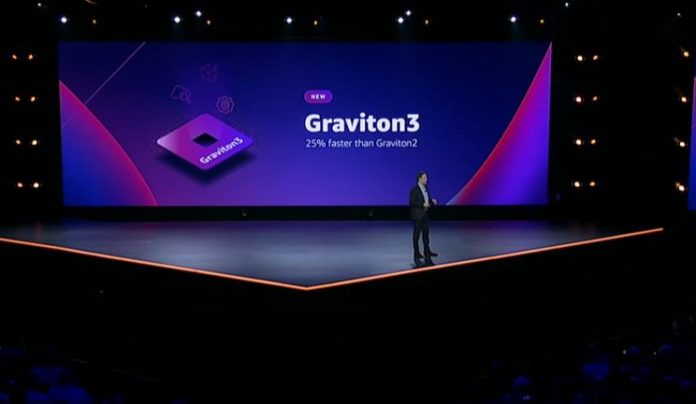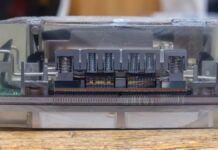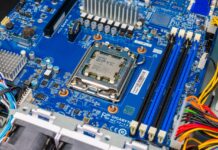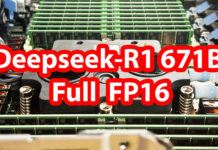AWS had a big day. Specifically, the company launched a number of new instances. One type, in particular, should be interesting, the new AWS C7g with AWS Graviton3 processors. For STH readers, you will quickly notice some of the key features.
Amazon AWS Launches Graviton3 Arm Processors
At the AWS re:Invent 2021 keynote, the new C7g instances were announced. Just to be clear, these are preview instances, not GA instances. In Amazon’s blog post on the Graviton3, the company calls them the “upcoming C7g” instances. That is important because AWS is pre-announcing instances with new chips. Usually, it takes a few months for those to go from preview to GA. Conversely, for Xeon and EPYC instances, usually the time to GA is now much shorter. For Amazon this announcement cadence makes sense.
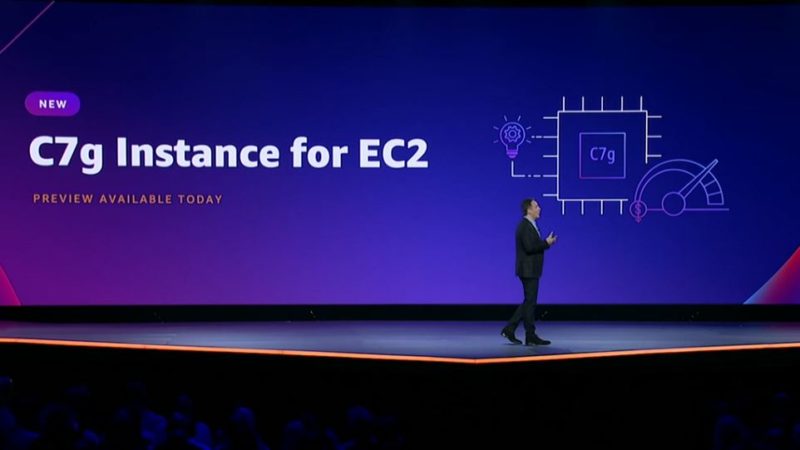
Now in terms of the big upgrades. AWS says 2x faster floating point and cryptographic performance on its keynote slide. In the blog post it is “up to twice as much floating point & cryptographic performance.” Our sense is that these are likely focused on the lower-level functional performance rather than the application level performance. On the machine learning side, we get up to 3x better performance and support for bfloat16. We saw bfloat16 support on 2020’s 3rd Generation Intel Xeon Scalable Cooper Lake chips that Facebook uses. We expect this to be a popular feature in CPUs in 2022 when we expect Graviton to GA, albeit likely before Sapphire Rapids and Milan.
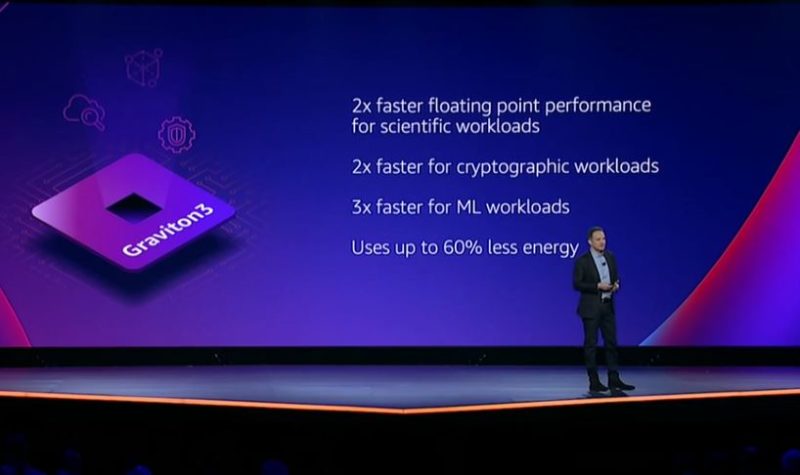
Amazon says that the new instances will support DDR5 as we would expect from a 2022 chip. The company is also using terminology around stack pointers and security that makes it sound like it is using an Arm Neoverse N2 core. We also get up to 30Gbps of network bandwidth on the new instances.
Final Words
For STH readers, this probably seems familiar. STH just covered AWS’s current offerings and cryptographic and AI inference workloads last week. You can see that in AWS EC2 m6 Instances Why Acceleration Matters. The video is here:
It is great to see the upcoming Graviton3 instances will support some of these features as we showed that they have significant impacts on performance in current generation instances.

